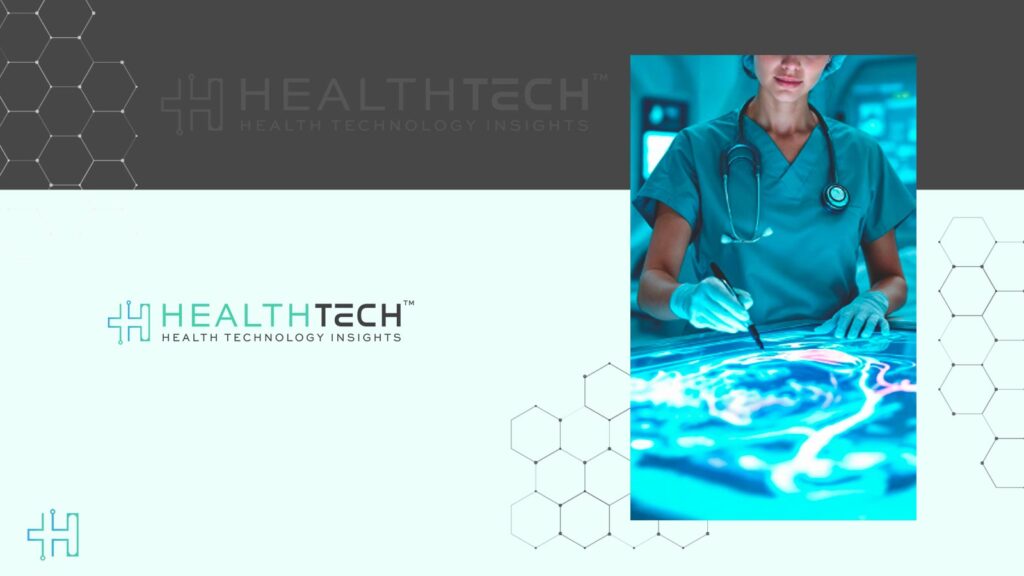Tempus AI, Inc., a technology company leading the adoption of AI to advance precision medicine, announced that six abstracts have been accepted for presentation at the European Society for Medical Oncology Congress 2025, taking place October 17–21 in Berlin, Germany.
“We’re sharing research at ESMO Congress 2025, including two oral presentations, that highlight the growing role of real-world data and AI in developing more effective, personalized cancer treatments,” said Ezra Cohen, MD, Chief Medical Officer of Oncology at Tempus. “These findings not only advance the development of new therapies but also equip clinicians with data-driven insights to guide patient care.”
Health Technology Insights: Doctivity Health Launches Doctivity AI for Healthcare Growth
This year, Tempus will highlight its latest scientific and clinical research findings via two oral presentations and four poster presentations.
Oral Presentations:
- Efficacy of Cabozantinib and Nivolumab in Cluster 1/2 Metastatic Clear Cell Renal Cell Carcinoma: Results from OPTIC RCC, a phase II trial of a novel RNAseq-based biomarker
- Date/Time: October 17, 2025; 4:35 – 4:40pm CEST
- Location: Karlsruhe Auditorium – Hall 5.2
- Presentation 2591O
- Session Name: Mini Oral session 1: GU tumours, renal & urothelial
- Summary: The study reports initial results from the OPTIC RCC (NCT 05361720) phase II multicenter trial, a prospective study investigating a biomarker-driven approach to treating metastatic clear cell renal cell carcinoma. Patients are assigned to nivolumab/cabozantinib (IO/TKI) for angiogenic-driven tumors (cluster 1/2) or ipilimumab/nivolumab (IO/IO) for immune-inflamed tumors (cluster 4/5) based on RNAseq-based molecular subtyping. This presentation focuses exclusively on the 26 patients with angiogenic cluster 1/2 tumors who were treated with nivolumab/cabozantinib. Of the 21 patients who received at least one post-baseline scan to date, 100% achieved a reduction in tumor burden, resulting in a RECIST best response of 71% partial response and 29% stable disease, with no progressive disease. These initial findings suggest that using RNAseq data to assign patients with angiogenic tumors to cabozantinib/nivolumab increases the overall response rate compared to unselected historical controls.
Health Technology Insights: DataJoint Raises $4.9 Million to Transform Data Management in Science
- Lymphocyte activation gene-3 (LAG3) expression patterns and immunotherapy (IO) response in metastatic renal cell carcinoma (mRCC)
- Date/Time: October 17, 2025; 5:10 – 5:15 pm CEST
- Location: Karlsruhe Auditorium – Hall 5.2
- Presentation Number: 2593MO
- Session Name: Mini Oral session 1: GU tumours, renal & urothelial
- Summary: This study investigated the relationship between lymphocyte activation gene-3 (LAG3) RNA expression and outcomes in 425 clear cell metastatic renal cell carcinoma (mRCC) patients treated with first-line immunotherapy (IO), using Tempus’ de-identified multimodal data and analytical platform, Lens. The analysis revealed that LAG3 positively correlated with the expression of other immune checkpoint genes and with increased tumor-infiltrating immune cells. Crucially, while real-world overall survival was similar across LAG3 levels, low LAG3 expression was associated with a reduced real-world objective response rate compared to high LAG3. These findings suggest that LAG3 has potential utility as a marker for IO response and supports exploring combination IO strategies in RCC patients.
Poster Presentations:
- Impact of tumor suppressor gene (TSG) alteration (alt) burden on outcomes in patients (pts) with metastatic castration-sensitive prostate cancer (mCSPC)
- Presentation Number: 2452P
- Summary: A real-world study of de-identified records from 2,173 patients with metastatic castration-sensitive prostate cancer (mCSPC) sequenced with the Tempus xT DNA assay investigated the impact of tumor suppressor gene (TSG) alterations (alt) on real-world overall survival (rwOS). The analysis was conducted in Tempus Lens Workspaces and compared the characteristics of patients with TSG alt to those with wild type TSG, identifying differences in median prostate-specific antigen (PSA) levels, visceral disease prevalence, and distinct patterns of co-occurring gene alterations. Critically, the analysis of rwOS showed that the presence of TSG alt—particularly an increased TSG alt burden—was associated with inferior survival outcomes following first-line therapy. These findings suggest that patients with mCSPC and high TSG burden constitute a high-risk group that may require biomarker-directed intensive first-line treatment, providing support for the ongoing Alliance phase 3 ASPIRE trial.
- Unveiling Integrin Beta-6 (IB6): Real-World Expression from the IB6 Expression and Clinical Outcomes in Non-Small Cell Lung Cancer (BEACON) Study
- Presentation Number: 1919P
- Summary: Initial findings from the Integrin Beta-6 (IB6) Expression and Clinical Outcomes in Non-Small Cell Lung Cancer (BEACON) study detail a retrospective, real-world observational analysis of IB6 prevalence in patients with metastatic non-small cell lung cancer (mNSCLC). The study leveraged the Tempus de-identified database and analytical platform, Tempus Lens, to examine a preliminary cohort of 200 mNSCLC patient records, utilizing immunohistochemistry to determine IB6 expression levels. The results demonstrate not only that high IB6 expression is common in mNSCLC, but that high expression was particularly frequent in patients with non-squamous histology compared to those with squamous histology. These data underscore the potential of IB6 as a promising novel biomarker and therapeutic target in mNSCLC, supporting the rationale for continued development and investigation of IB6-directed therapies, such as the investigational agent sigvotatug vedotin.
- The association between tumor immunogenomic features and first-line (1L) therapeutic outcomes in advanced biliary tract cancer (BTC)
- Presentation Number: 94P
- Summary: The researchers used Tempus Lens to conduct a real-world analysis of advanced biliary tract cancer (BTC) patients treated with first-line gemcitabine + cisplatin (G+C) with or without immunotherapy (ICI), investigating the association between tumor immunogenomic features and outcomes. The real-world overall survival (rwOS) for the total BTC cohort was similar between the G+C+ICI and G+C groups. The analysis also studied the natural history of patients with BTC and specific genomic alterations and found that FGFR2 fusions and HRR alterations were linked to improved rwOS, while KRAS alterations were associated with worse rwOS, regardless of the treatment regimen. These findings show that 1L regimens for BTC had similar rwOS and that genomic alterations have distinct prognostic impacts. Future analysis in clinical trials may help define new prognostic and predictive biomarkers across both early and late stage BTC.
- ImmunoDriver-2: CD8 T cell and PD-L1 levels associate with first-line (1L) overall survival (OS) in immune checkpoint inhibition (ICI)-treated non-small cell lung cancer (NSCLC)
- Presentation Number: 1920P
- Summary: The research team conducted an analysis of de-identified records from 5,343 NSCLC patients using Tempus Lens to characterize the association of CD8 T cell (CD8T) and PD-L1 proportions with real-world overall survival (rwOS) and driver alterations (dAlts) in early and metastatic NSCLC patients treated with first-line ICI + chemotherapy (CT) or ICI alone. Using a cohort of Tempus’ de-identified data, the study found that in metastatic NSCLC, both PD-L1 and CD8T were associated with improved rwOS after 1L-ICI±CT, with CD8T further stratifying survival within PD-L1 groups. The rwOS was greatest when both CD8T and PD-L1 were high. Immunogenomic profiling showed that CD8T and PD-L1 were highest in tumors with no dAlts and those with KRAS dAlts, but were lowest in tumors with classic/non-classic EGFR dAlts. These findings suggest that the combined analysis of CD8T and PD-L1 may provide a valuable immunophenotype that applies across different disease stages and dAlt statuses to enrich for ICI efficacy.
Health Technology Insights: ENHERTU Gets FDA Nod for High-Risk Early HER2+ Breast Cancer
To participate in our interviews, please write to our HealthTech Media Room at sudipto@intentamplify.com
Source – businesswire



